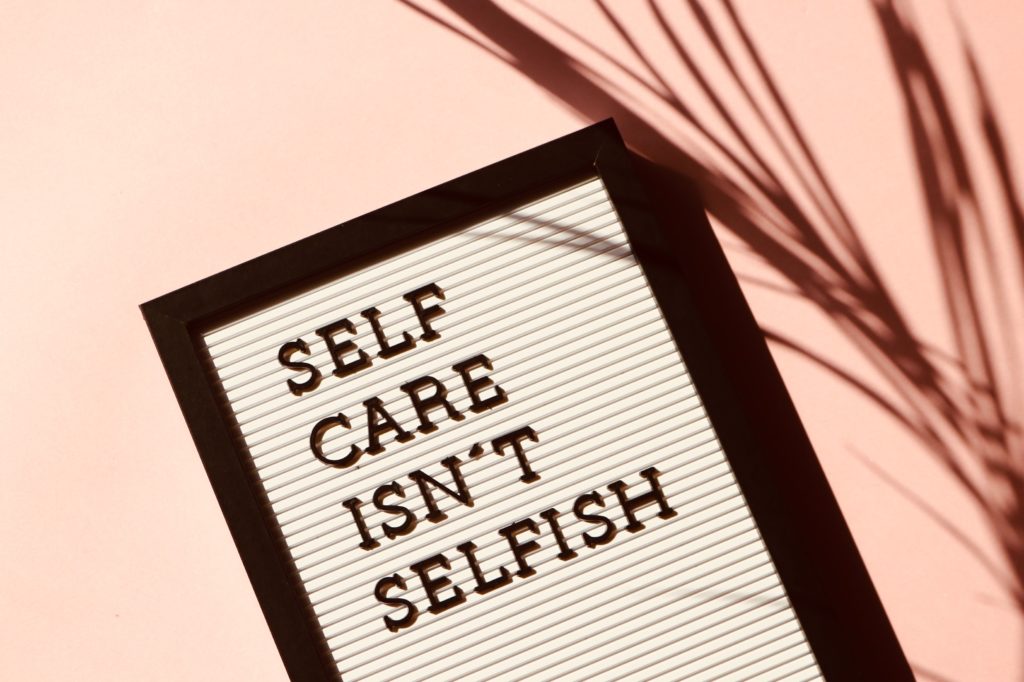We all grieve in our unique ways. For some, it goes quickly, while for others, it takes a long time. The fact is that when we lose someone we care about, we never quite recover. The vacuum, the void they leave, becomes a part of our lives. It becomes a part of our trip and a very significant part of it. We evolve and adapt to life without a specific person until we find a space in our hearts for the memories to rest; a place where we can learn to smile and be at peace with those memories. Meditation for grief can be helpful to overcome it.

Table of Contents
What does it look like to be in grief?
Grief is the normal human reaction to loss. While the death of someone you care about may cause the most intense form of grief, the painful loss can take many forms, including (but not limited to) the loss of a partner due to a breakup, the loss of a friendship, the loss of a job or financial stability, the loss of a pet, the loss of your health due to illness or injury, and the loss of a marriage.

Each person’s grieving and recovery path is unique. Shock, astonishment, wrath, guilt, and aggravation are all examples of emotions, as are loneliness, anxiety, despair, and melancholy. Because our minds and bodies are intertwined, the physical manifestations of sadness are extremely real. Changes in appetite, sleeping troubles, fatigue, sickness, and physical discomfort are examples of symptoms.
How to overcome grief through meditation
The whirlwind of emotions and experiences connected with bereavement can be overwhelming at times. While meditation may not change the way we feel, it does alter our perception and experience of those sensations. Practicing mindfulness meditation for mourning, or simply observing thoughts and feelings without judgment or response, assists the body and mind in finding calm and sanctuary at a time of profound transition.
- Try to gain acceptance
- Seek help from people who care about you
- Don’t neglect yourself and practice self-care
- Use Guided Meditation for Grief and Loss
Try to gain acceptance
It is natural to be in a state of disbelief or to experience a strong feeling of wrath and unfairness while we are grieving a loss. Whatever emotions occur, judging and/or repressing them simply serves to aggravate them. However, by using meditation to sit with our complete being, we may welcome and digest what is happening right now. Acceptance does not imply forgiving, disregarding, or justifying what has occurred. It just involves acknowledging what has occurred, processing it, and eventually discovering that you are a stronger and different person as a result of it.

Remember that everyone’s grieving process is unique. Someone can say, “You should get over your grief now,” or “You’ve been mourning for a long time.” You are not required to pay heed to these remarks. Remind yourself that your journey is your own and that taking the time you need to recover will benefit you much.
Seek help from people who care about you
Don’t isolate yourself as a result of your sadness. If you’re scared about what other people will say or if you’re ashamed to express your sadness in front of friends and family, don’t. People that love and care for you will be there to support you. If they are also in mourning, weep with them. It may be a bonding event as well as a way to encourage one another during this difficult time.

Don’t neglect yourself and practice self-care
Grief and loss may be so overwhelming that we ignore ourselves. We cease eating properly, careless about our hygiene. We put our interests and things that make us happy on the back burner.
There is a lot of guilt associated with “moving on.” The irony is that moving on is a necessary part of the healing process. It’s what the person we lost would want for us.

Take care of yourself, practice self-care, and get back to living your life as soon as you’re ready.
Use Guided Meditation for Grief and Loss
We are all aware that the most effective approach to recovering from sadness and loss is via time. As they say, time cures all wounds. However, meditation can assist to ensure that the procedure goes as smoothly as possible.
When we don’t have a healthy connection with deep emotions like sadness, it can make the healing process more difficult. It may cause more hiccups on the road to recovery after loss. A guided meditation for mourning practice, on the other hand, teaches us not to compound this feeling. It enables us to recognize this feeling for what it is: a collection of sensations. What causes the pain is the tale we tell ourselves to cope with our sadness.

It’s appropriate to deal with emotions like wrath, remorse, guilt, and shock in their unique ways. First, deal with your sadness. Allowing yourself to grieve and allowing yourself time and space to do so is one of life’s most beautiful blessings.
Incorporate a guided grieving meditation into your recovery path to make it a bit easier.
What exactly is grief-guided meditation?
Guided mourning meditation is a basic mindfulness technique that can help you transform your connection with this extremely intense and often overpowering emotion. Meditation is not employed to get rid of or suppress grief. Instead, when you’re mourning, a mindfulness practice might help you deal with your emotions. It enables you to experience pain without creating a tale to it.
The story we tell ourselves about our sadness is what causes it, or at the very least, adds to it. Instead, we should embrace the pain, work through it, and let it move through us over time.

Grief, in many circumstances, never goes away. It simply diminishes over time. Accepting this is a necessary step in the healing process. Grief serves as a reminder, an experience that we may keep with us for the rest of our lives to become better people. It may educate us to be more patient and understanding of others, as well as assist us to develop empathy for them.
For most people suffering from loss, guided contemplative practice is typically the best solution. When we try to meditate alone while experiencing these deep feelings, we may become distracted. Instead, guided meditation for mourning assists us in staying focused on the practice and not getting caught up in the tale of the loss.
Use the Evolve App to help you with Guided Meditation. It is an amazing app that teaches you the best practices of mindfulness. Try Evolve App to meditate and build your self esteem. The app has journeys that will help you lead a healthy life. The Evolve app is now live globally on Android & Apple, click here to try for free!
Click Below to read more articles
Guided Meditation vs Self-Guided Meditation
Meditation For Higher Self-esteem
Co-founder and brains at LeapX by C32 Media Labs
Mail at sarah@c32.media to connect with her.